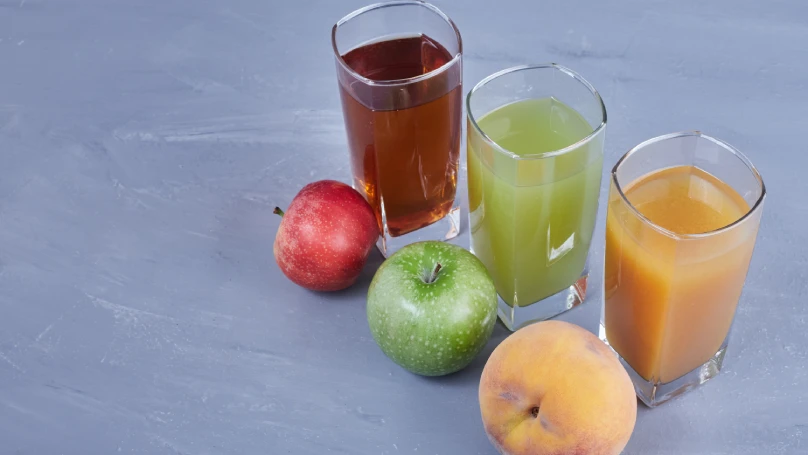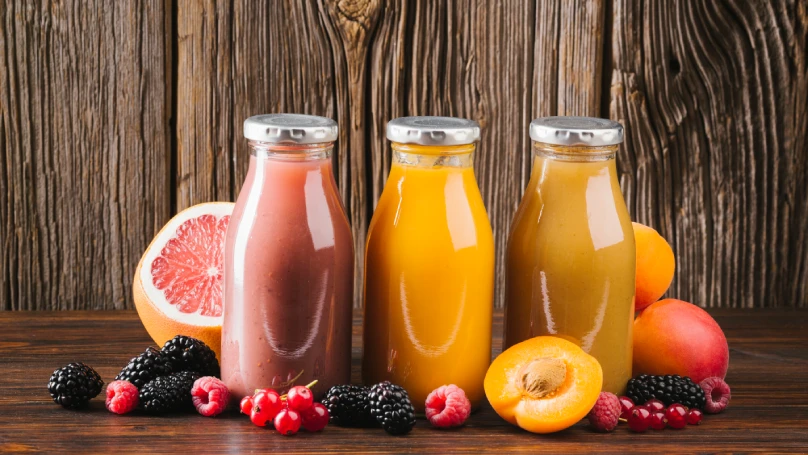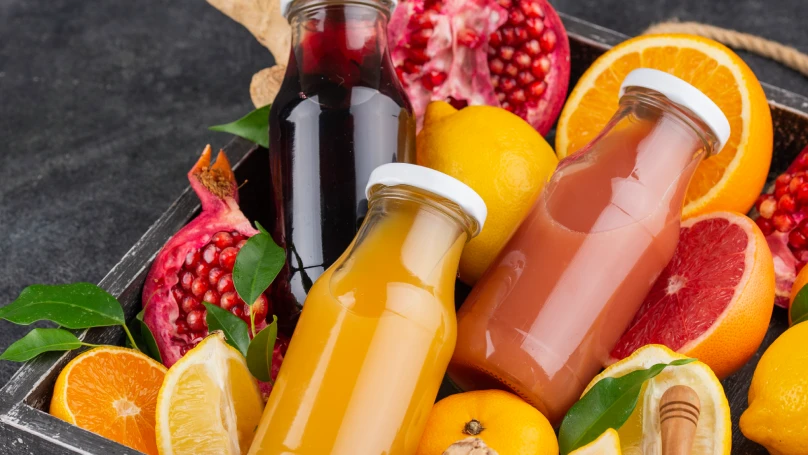Imagine peeling an orange so fresh its zest bursts with citrus aroma, juicy pieces almost like nature’s candy packed with fibers and nutrients. In contrast, pour yourself a glass: sweet, convenient fruit juice concentrate that almost seems to be a healthy choice. But is it, though? The fruit juice concentrate that comes from real fruit has undergone processing that takes away important constituents like fiber and can also add sugars and preservatives.
Such transformations can influence how the body handles juice, creating spikes in blood sugar levels along with other future health repercussions. One will also know how fruit juice concentrate affects the body, hence know what to eat. The next sections will be devoted to knowing what fruit juice concentrate is, what it is made up of in terms of nutrition, possible usefulness, and the health implications of ingesting fruit juice concentrate.
What Is Fruit Juice Concentrate?
Fruit juice concentrate is a kind of fruit juice that undergoes processing for maximum removal of the water content so that a denser, more syrupy product can be obtained. The concentration process not only reduces the volume of the juice for economic storage and transportation purposes but also enhances the sweetness and flavor almost beyond ordinary.
The steps involved in fruit juice concentrate processing are given below:
- Extracting juice
- Filtering
- Evaporating
- Cooling and Packaging
The process results in a product that is more convenient to store and has an extended shelf life compared to fresh juice products. It must be put down, however, that some losses of nutrients, especially heat-sensitive nutrients, such as vitamin C, occur during the heating.
Getting the best information on “what is fruit juice concentrate” will help you assess your dietary choices. Though fruit juice concentrate is known for its convenience and longer shelf life, it is important that its nutritional profile be considered for balanced consumption.”

Nutritional Profile of Fruit Juice Concentrate
Fruit juice concentrate is a high-energy product consisting mainly of carbohydrates, primarily in the form of natural sugars. For example, 100 grams of apple juice concentrate has around 266 calories and 65 grams of carbohydrates, of which around 55 grams are sugars. Similarly, passion fruit juice concentrate contains about 204 calories and 50 grams of carbohydrates per 100 grams, of which 36 grams are sugars. All this sugar not only gives these concentrates the sweet taste but also can really affect blood sugar levels if consumed in excess.
Just as with concentrates used for fruit juices, the concentration process preserves vitamins and minerals such as vitamin C and potassium, while greatly reducing levels of certain other nutrients and removing dietary fiber. Take the following for example: a glass of orange juice made from 100% concentrate in the amount of 8 ounces would be having 110 calories and 24 grams of carbohydrates, while the medium-sized orange is having 62 calories and 15 grams of carbohydrates.
The absence of fiber in concentration allows them not to substitute the fullness or the digestive benefits of an entire fruit. So, basically, fruit juice concentrates furnish some nutrients; just take it easy with them and give first priority to whole fruit to enjoy balanced fiber and other nutrient intake.
Benefits of Consuming Fruit Juice Concentrate
Fruit juice concentrate is a handy and cost-efficient way of enjoying fruit flavors and benefits. Juice concentrates are enriched with species of vitamins and minerals, such as vitamin C, potassium, and folate, which are important for the immune system, heart health, and general welfare.
For instance, one cup of orange juice from unsweetened frozen concentrate provides 100% of the Daily Value vital for immunity and wound healing. Besides, concentrates could also be a source of beneficial plant compounds such as polyphenols and carotenoids, which play an important role in fighting oxidative stress and inflammation in the human body by virtue of their antioxidant properties.
In addition, you can practically stock juice concentrates wherever fresh food is absent, thanks to their longer shelf life. Therefore, food-wise, they can be incorporated as a sweetener in many food recipes. Yet moderation is the key because they are loaded with natural sugars and, thus, lack the dietary fiber that usually comes packed with whole fruits.
You can make the most out of the advantages of using fruit juice concentrate while preventing the downside by taking them in moderation as part of a well-balanced diet, considering the use of 100 percent juice concentrates without added sugars.

Health Risks Associated with Fruit Juice Concentrate
With all these advantages about fruit juice concentrate-handy-nutritional, health risks cannot be undermined. The following are some of the health risks associated with fruit juice concentrates that should be understood before inclusion in a diet:
Sugar Content and Spikes in Blood Sugar
Natural sugars are really rich in fruit juice concentrates, and hence, their intake may raise blood glucose levels immediately and within a very short time. The concentration does not have the fiber it has as whole fruits. Fiber in fruits helps to slow down the absorption of sugar, thus enabling digestion and absorption of sugars. This situation becomes more alarming for individuals who are suffering from insulin resistance or diabetes.
Weight Gain and Obesity
Besides, jumbled calories consumed from such concentrates can become a factor that drives weight gain in many cases, mostly due to sugar content. Since they lack fiber, they provide less satiety compared to whole fruits and thus may contribute to increased consumption.
Dental Health Problems
The acidic and sugary composition of fruit juice concentrates tends to erode tooth enamel, paving the way for cavities and tooth decay. By consuming fruit juice concentrates often without maintaining oral hygiene, one can aggravate dental issues.
Lower Nutritional Value
The processing involved in the making of fruit juice concentrates generally causes the loss of certain nutrients like vitamins and phytonutrients. The lack of fiber further worsens the nutritional profile, considering the nutritional comparison to whole fruits.
Additives and Preservatives
Some concentrates may use functional additives such as benzoic acid, which is otherwise considered to be safe in small doses; however, it has been implicated in allergic reactions or other problems for sensitive individuals.
Not Suitable for Certain Populations
In large amounts, fruit juice concentrates pose unique risks to certain groups, including children, the kidney-ill, and patients on specific types of medication. Substantial changes in diet involving these products should always be discussed with heath care practitioners.
finally
Concentrates give one the pleasure of tasting fruits any time of the year with the utmost ease. Some very important nutrients like vitamin C and potassium are retained in concentrate form, which makes it very practical for those supplementing their diet with these vitamins. It is a consideration concerning its sugar content: it cannot be considered an equal or good substitute for whole fruits, for its drawing factor is the absence of dietary fiber, which gives rise to quick spikes in blood sugar and comparatively lowers levels of satiety. Furthermore, depletion of some nutrients and enrichment with additives may be an issue for many consumers in general when it comes to concentrates.
At Tarazfoods, we understand it takes all sorts. Tarazfoods is a wholesale fruit juice concentrate supplier and exporter in Iran and provides customers with a wide variety of products.





